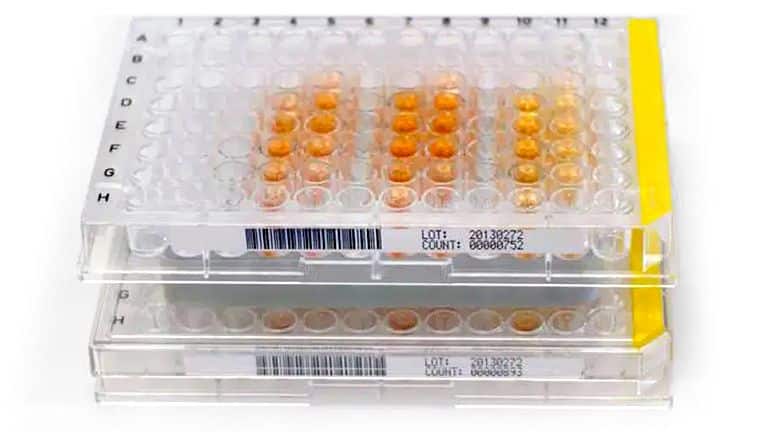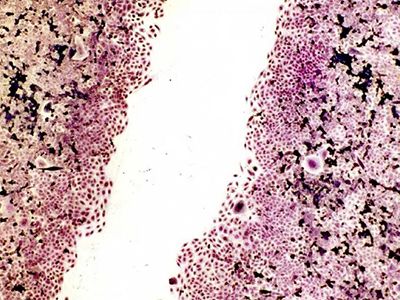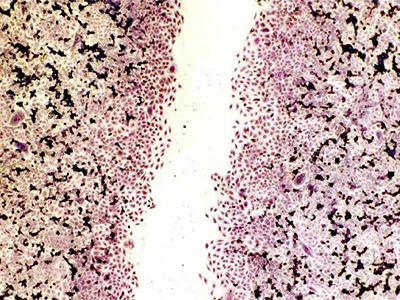Dartsch Scientific
In vitro studies on the activation of cell metabolism in organ-specific cell cultures
All three studies were carried out at the Institute for Cell Biological Test Systems (DARTSCH SCIENTIFIC GMBH) by Prof Dr rer. nat. Peter C. Dartsch.

In vitro studies on the activation of cell metabolism in organ-specific cell cultures
Since 1982, we have been dedicated to developing complementary medical solutions aimed at stimulating and supporting the organism’s own regulation through cell stimulation. We have developed two Class I and IIa medical devices, certified to DIN EN ISO 13485 for medical use, which have been designed to complement each other: The stationary high-end device Rayocomp PS 1000 polar 4.0 med. features the ECG-based Rayoscan® function, which uses biofeedback methods to create an energetic fingerprintThe energetic fingerprint is made up of the fundamental frequency values required to support the organism's own regulation at the time of the energetic test. of the patient. Based on this energetic analysis, personalised treatment concepts can be formulated. With the Rayocomp PS 10 med. these can be used at home on an outpatient basis – i.e. during home sessions under the supervision of a practitioner.
In vitro studies to simulate wound healing in cultured connective tissue fibroblasts
The Mini-Rayonex has already proven its value and effectiveness to hundreds of thousands of users worldwide. Another in vitro studyAn in vitro study is a scientific study conducted in an artificial environment, usually in a laboratory. In vitro studies are used to investigate the effects of substances, procedures or... conducted by Dartsch Scientific used cultured connective tissue fibroblasts to investigate whether the frequencyThe frequency describes the number of oscillations per second and is given in the unit Hertz (Hz). An oscillation passes through various points: The starting point, the maximum point, the... spectra emitted by the device could produce quantifiable positive effects in vitro, as assessed by objective and established measurement methods. The stimulating effect of Mini-Rayonex on wound healing observed by users was confirmed in the in vitro study. The effect of the Mini-Rayonex resulted in a stimulation percentage of almost 20 %. This test result shows that the use of the Mini-Rayonex can, for example, support the acceleration of healing processes.
Note: In vitro studies cannot be transferred 1:1 to humans.
Photomicrographs of stimulated and non-stimulated connective tissue fibroblasts


Peer-reviewed publication: Bioresonance According to Paul Schmidt (BaPS) and its Beneficial Effects on the Integrity of the Intestinal Barrier in vitro
A third in vitro study, conducted with Dartsch Scientific, showed that the Mini-Rayonex protects intestinal epithelial cells from oxidative stress. It was shown that the Mini-Rayonex can promote a tighter intestinal barrier and thereby prevent the penetration of undesirable substances into the bloodstream.
The study treated intestinal cell cultures with a Mini-Rayonex device equipped with a dipole antenna systemThe dipole antenna system of Bioresonance according to Paul Schmidt consists of a fixed and a moving rod layer. Depending on the angle that is chosen between the two rod... and a non-functioning Mini-Rayonex device without a dipole antenna system (placebo). Exposure of the cells to the actively emitting Mini-Rayonex device strengthened the intestinal barrier by more than 30 % compared to the placebo device. The study also showed that the regeneration process of intestinal epithelial cells after trauma or injury increased by more than 12 % when using the active emitting Mini-Rayonex device compared to the placebo device. This test result shows that the use of Mini-Rayonex can be recommended for certain intestinal disorders such as leaky gut syndrome.
The research report was published in the American journal Advances in Bioengineering & Biomedical Science Research.
Note: In vitro studies cannot be transferred 1:1 to humans.